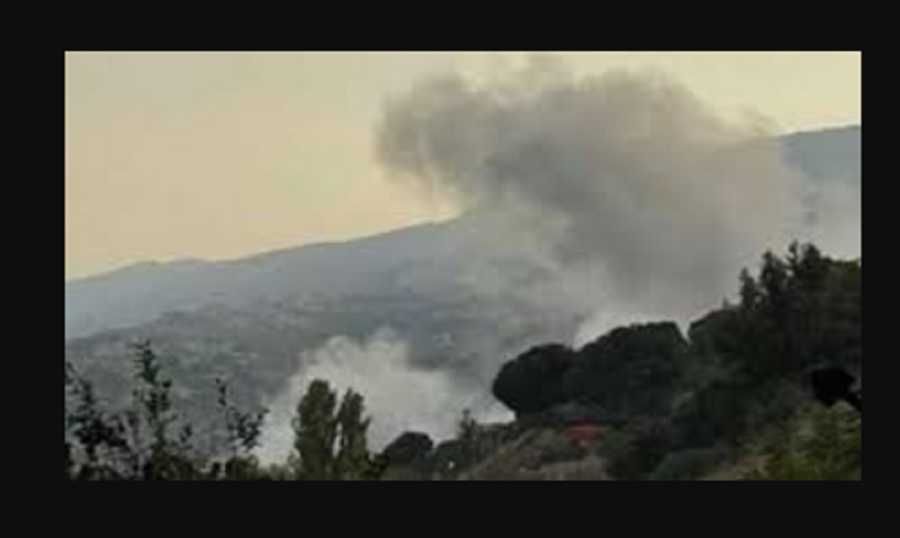
The long-awaited ceasefire seems precarious following several violations as displaced people from the conflict between Israel and Hezbollah continue to return to their homes in south Lebanon, the Bekaa and the southern suburbs of Beirut.
Breaches of the Ceasefire
Recent events show that the situation remains tense. The Israeli army bombed a Hezbollah ammunition depot, an action that potentially violates the agreement but is seen by the Jewish state as a legitimate response to a persistent threat. Shots were also exchanged against vehicles. On the third day of the ceasefire's entry into force, the south of the country continues to be in the grip of Israeli strikes.
The Kfar Kila stadium was shelled, machine-gun fire was observed in Aitaroun and citizens were targeted in Khiam, where they were attending a funeral ceremony. In the same locality, the Israeli army occasionally carried out machine-gun sweeps.
In Tyre and Bint Jbeil, an atmosphere of caution prevailed, especially as the inhabitants of the villages adjacent to the border between Lebanon and Israel were warned not to return to their homes. On Friday morning, a new warning from the Israeli army's Arabic-speaking spokesman was added to the previous ones. Avichay Adraee warned the inhabitants of 63 villages not to return to their homes.
A curfew has also been imposed on all residents of the southern Litani, under which all traffic is prohibited between 5 PM and 7 AM.
On Thursday, the Israeli army announced that it had targeted two Hezbollah members operating at a training site in southern Lebanon, citing a violation of the agreement reached. The site in question had been used in recent weeks by Hezbollah fighters to carry out attacks against the Jewish state. This was at least reported by the Israeli army, which stated in a press release that it was “deployed in southern Lebanon, continuing its operations to protect Israel and its citizens.”
Israel Sums up Its Activities in Lebanon
The Israeli military published on Friday morning a summary of its activities against the Lebanon-based terror group over the past 14 months of war. According to army data, Israeli forces struck over 12,500 Hezbollah targets, including 1,600 command centers and 1,000 weapons depots since the pro-Iranian group began its attacks on Israel on October 8, 2023.
The military said that 14 DF brigade-level task forces participated in the ground offensive launched in September, and separately, over 100 special operations were carried out.
The Israeli army added that it had confirmed with high confidence the deaths of 2,500 Hezbollah operatives, though it estimated that number to be closer to 3,500.
The report also added that the army had captured some 12,000 explosive devices and drones during the conflict, 13,000 rockets, launchers, and anti-tank and anti-aircraft missile systems, and 121,000 pieces of communications equipment and computers.
Reactions in Israel
Following the arrival of the United States’ General who will head the ceasefire committee, several reactions in Israel emerged on the agreement. The Israeli daily Yedioth Ahronoth quotes officials in Israel’s security establishment “estimating the likelihood of a return to fighting in Lebanon at 50%.”
Furthermore, Israeli military analysts have expressed their dissatisfaction with the outcome of the war, with former Israeli army Southern Command commander Major General Tal Russo arguing that “the current settlement is full of holes.”
Russo said he believes that “UNIFIL and the Lebanese army are not capable of dismantling Hezbollah’s capabilities,” noting that “the Israeli Cabinet does not have enough expertise to deal with this issue.”
Israeli Prime Minister Benjamin Netanyahu threatened Hezbollah on Thursday with an “intensive war” if the Lebanese militant group violates the newly established ceasefire.
“If necessary, I have instructed the Israeli army to wage an 'intensive war' in response to any violation,” Netanyahu said in an interview with Israeli broadcaster Channel 14.
The Lebanese Army Faces a Delicate Mission
On the other hand, the Lebanese Army announced in a statement that “between 8:30 AM and 2:00 PM, on Friday, an army unit will detonate unexploded ammunition left over from the Israeli aggressions in Arnoun-Nabatieh blasting field.”
The Lebanese army issued a statement on Thursday specifying that Israel had violated the ceasefire agreement on several occasions “by carrying out air violations and targeting Lebanese territories with various weapons. The army command is monitoring these violations in coordination with the relevant authorities,” the statement said.
Today, the main responsibility lies with the Lebanese army, which must ensure that the clauses of the agreement are implemented and respected, particularly regarding territorial control and the prevention of any escalation. This would be all the more difficult if Hezbollah were to prevent the army from fulfilling its duty, or to circumvent the commitments made.
As if to emphasize this point, the Speaker of Parliament, Nabih Berri, addressed the issue in an interview with the daily an-Nahar. He stressed that the deal reached was binding on all parties and that the Lebanese army, as the only legitimate force, had to play its full role in guaranteeing the application of the agreement and avoiding any slippage.



Comments